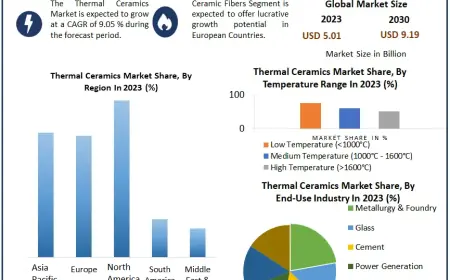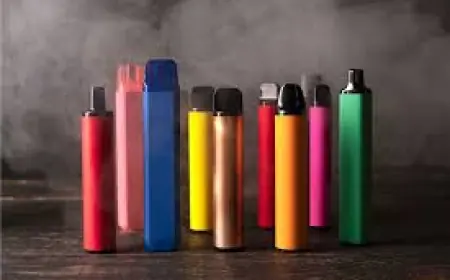Exploring PE Film: Versatile Solutions for Multiple Industries
Polyethylene (PE) film is one of the most widely used materials in the world of packaging, agriculture, and a wide array of industrial applications. Its remarkable versatility, durability, and cost-effectiveness have made it a go-to choice for industries ranging from packaging and construction to agriculture. Whether it’s used as protective packaging, as a moisture barrier in agriculture, or for industrial purposes, PE film offers countless benefits that make it an essential material in today’s market. This Pulkit Plastic Products delves into the features, applications, and advantages of PE film, along with a look at PE film rolls, Polyethylene film suppliers, and PE film for agriculture.
1. What Is PE Film?
PE film is a thin, flexible plastic film made from polyethylene, a thermoplastic polymer. It is produced through the extrusion process, where polyethylene resin is heated and formed into thin sheets or films. Depending on the desired properties, PE film can be manufactured in varying thicknesses, lengths, and finishes, such as glossy or matte. The versatility of PE film makes it suitable for multiple applications, including packaging, agriculture, and construction.
There are different types of PE film, including low-density polyethylene (LDPE), high-density polyethylene (HDPE), and linear low-density polyethylene (LLDPE), each offering distinct characteristics. LDPE films are more flexible and commonly used for bags and packaging, while HDPE films are more rigid and durable, typically used in industrial and construction applications. LLDPE films combine the properties of both, making them ideal for high-performance packaging.
2. PE Film Rolls: A Key Product for Packaging and Protection
One of the most common forms of PE film is PE film rolls, which are large continuous lengths of PE film that are typically rolled up for convenience. PE film rolls are widely used in various industries due to their flexibility, lightweight nature, and cost-effectiveness. They can be cut and shaped to meet specific packaging needs, making them ideal for a variety of applications.
In the packaging industry, PE film rolls are often used to wrap products for protection during transportation and storage. The film acts as a barrier to moisture, dirt, and dust, ensuring that the products remain clean and undamaged. The use of PE film rolls is particularly common in the food industry, where it helps preserve freshness and extends the shelf life of products. It is also used in retail packaging, wrapping items such as clothing, electronics, and consumer goods.
PE film rolls come in different thicknesses to provide varying levels of protection. For example, thicker films are used for heavier-duty applications, such as wrapping construction materials, while thinner films are used for light packaging needs. The roll form allows for easy handling and customization, making PE film rolls a versatile and widely used solution in many industries.
3. The Role of Polyethylene Film Suppliers
To meet the growing demand for PE film, Polyethylene film suppliers play a crucial role in the market. These suppliers source high-quality polyethylene resin and manufacture PE films in various forms, including rolls, sheets, and bags. They offer products that cater to diverse industries, ensuring that businesses have access to the right materials for their specific needs.
Working with Polyethylene film suppliers ensures that companies receive reliable, consistent quality, and a variety of options to choose from. These suppliers often offer custom solutions, providing films in different sizes, thicknesses, colors, and finishes. By collaborating with the right supplier, businesses can access innovative materials designed for specific applications, such as UV-resistant films for outdoor use, food-safe films for packaging, and films with enhanced puncture resistance for industrial purposes.
Moreover, Polyethylene film suppliers are instrumental in ensuring that the films meet industry regulations and standards, such as food safety certifications and environmental sustainability guidelines. With their expertise, these suppliers help companies streamline their packaging processes, reduce waste, and improve efficiency.
4. PE Film for Agriculture: Enhancing Crop Growth and Protection
PE film for agriculture is one of the most critical uses of polyethylene films, particularly in the form of greenhouse coverings, mulch films, and irrigation films. In agriculture, PE film plays an essential role in improving crop yields, protecting plants from harsh environmental conditions, and optimizing resource use.
PE film for agriculture is commonly used as a greenhouse cover due to its ability to maintain a controlled climate, offering protection against temperature fluctuations, pests, and diseases. Greenhouses made from PE film help create an optimal growing environment for crops, allowing farmers to extend the growing season and increase overall productivity. The UV-resistant properties of PE film also help in preventing degradation due to sun exposure, ensuring longer-lasting performance in agricultural settings.
In addition to greenhouse covers, PE film for agriculture is used as mulch film, which is spread over the soil to conserve moisture, reduce weed growth, and regulate soil temperature. This type of film helps improve crop yields by creating a favorable environment for root development. PE film used in irrigation systems also assists in delivering water efficiently, reducing water waste, and providing crops with consistent moisture.
5. Advantages of PE Film in Various Applications
The Polyethylene film suppliers widespread use across industries can be attributed to its many advantages. Some of the most notable benefits include:
1. Cost-Effectiveness: PE film is relatively inexpensive compared to other packaging and protective materials, making it an affordable option for businesses looking to reduce their packaging costs.
2. Durability and Strength: PE film is resistant to punctures, tears, and abrasions, making it a reliable material for packaging and protective applications.
3. Moisture Resistance: PE film provides excellent protection against moisture, preventing damage to products during storage and transit.
4. Versatility: PE film can be customized in terms of thickness, texture, and size to meet specific requirements for different applications, from food packaging to industrial uses.
5. Environmental Considerations: Many polyethylene films are recyclable, which helps reduce waste and environmental impact. This makes PE film an increasingly attractive option for businesses committed to sustainability.
6. The Future of PE Film: Innovation and Sustainability
The demand for PE film is expected to continue growing in the coming years, driven by advancements in technology, sustainability efforts, and the need for more efficient packaging solutions. As industries strive to meet sustainability goals, there is increasing pressure to develop more eco-friendly options, such as biodegradable or recyclable PE films.
Innovative technologies are also making it possible to improve the properties of PE film, such as enhancing its strength, barrier resistance, and UV protection. Polyethylene film suppliers are continuously researching new ways to make PE films more efficient and environmentally friendly, such as using renewable resources for production or creating films that are easier to recycle.
In agriculture, the continued development of PE film for agriculture is expected to enhance crop protection and optimize resource management, contributing to more sustainable farming practices. As the agricultural sector faces challenges such as climate change and food security, PE film will remain an essential tool for improving productivity and ensuring food safety.
7. Environmental Impact and Recycling of PE Film
As with all plastic materials, the environmental impact of PE film is a topic of growing concern. However, PE film is recyclable, which can help mitigate its environmental footprint. Many Polyethylene film suppliers are focusing on developing recyclable and biodegradable variants of PE film, reducing waste and promoting more sustainable practices in industries that rely on plastic films.
Recycling PE film presents certain challenges, as the material must be separated from other types of plastic and cleaned before it can be reused. However, with increasing awareness of the environmental impact of plastic waste, many businesses are investing in systems and technologies to improve the recycling process and reduce reliance on virgin plastic.
8. Conclusion: The Essential Role of PE Film
PE film remains a cornerstone of packaging, agriculture, and industrial applications due to its unparalleled versatility, strength, and affordability. From PE film rolls used in packaging to PE film for agriculture that enhances crop protection and growth, polyethylene films offer essential solutions for a wide range of industries. As sustainability becomes an increasingly important factor, Polyethylene film suppliers are working to innovate and create eco-friendly alternatives that contribute to a more sustainable future. In conclusion, PE film for agriculture adaptability ensures it will continue to be a vital material in global industries for many years to come.
Frequently Asked Questions (FAQs)
1. What are the main uses of PE film?
PE film is used in a variety of applications, including packaging, agriculture, and industrial purposes. It is commonly used for wrapping products, providing moisture barriers, and creating greenhouse covers and mulch films in agriculture.
2. Is PE film environmentally friendly?
PE film is recyclable, making it an environmentally friendly option when properly disposed of. Many manufacturers are also exploring biodegradable and renewable alternatives to reduce its environmental impact.
3. Can PE film be customized?
Yes, PE film can be customized in terms of thickness, size, and design to meet specific requirements. It can also be produced with different finishes, such as matte or glossy, depending on the application.
4. How does PE film benefit agriculture?
PE film in agriculture is used for greenhouse coverings, mulch films, and irrigation systems. It helps optimize crop growth by providing a controlled environment, reducing moisture loss, and improving soil conditions.
What's Your Reaction?
 Like
0
Like
0
 Dislike
0
Dislike
0
 Love
0
Love
0
 Funny
0
Funny
0
 Angry
0
Angry
0
 Sad
0
Sad
0
 Wow
0
Wow
0














































